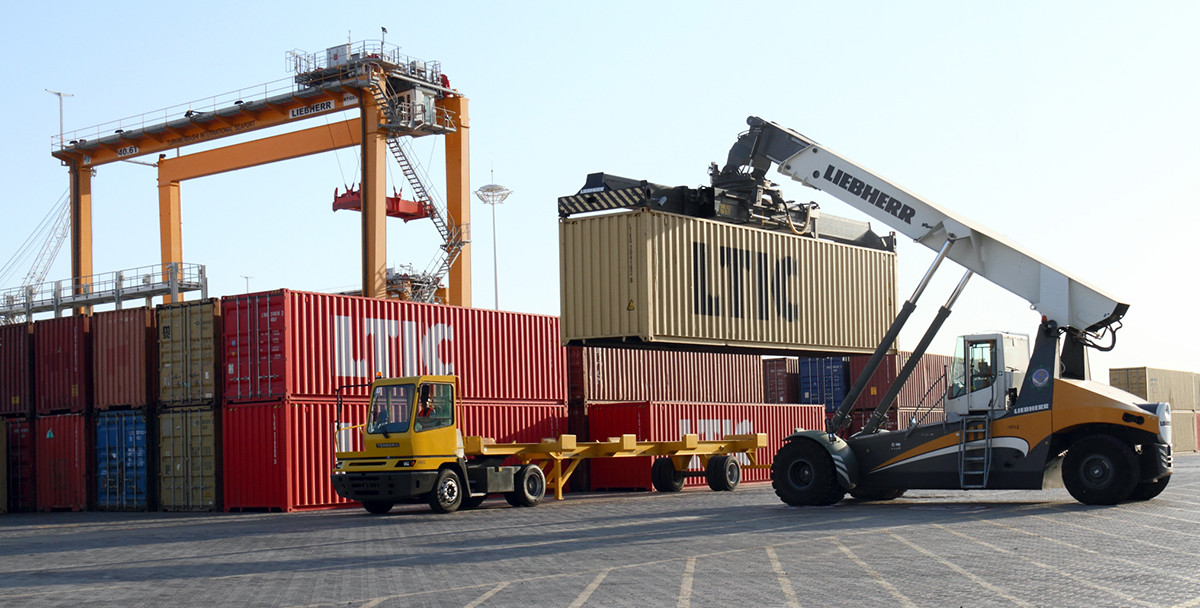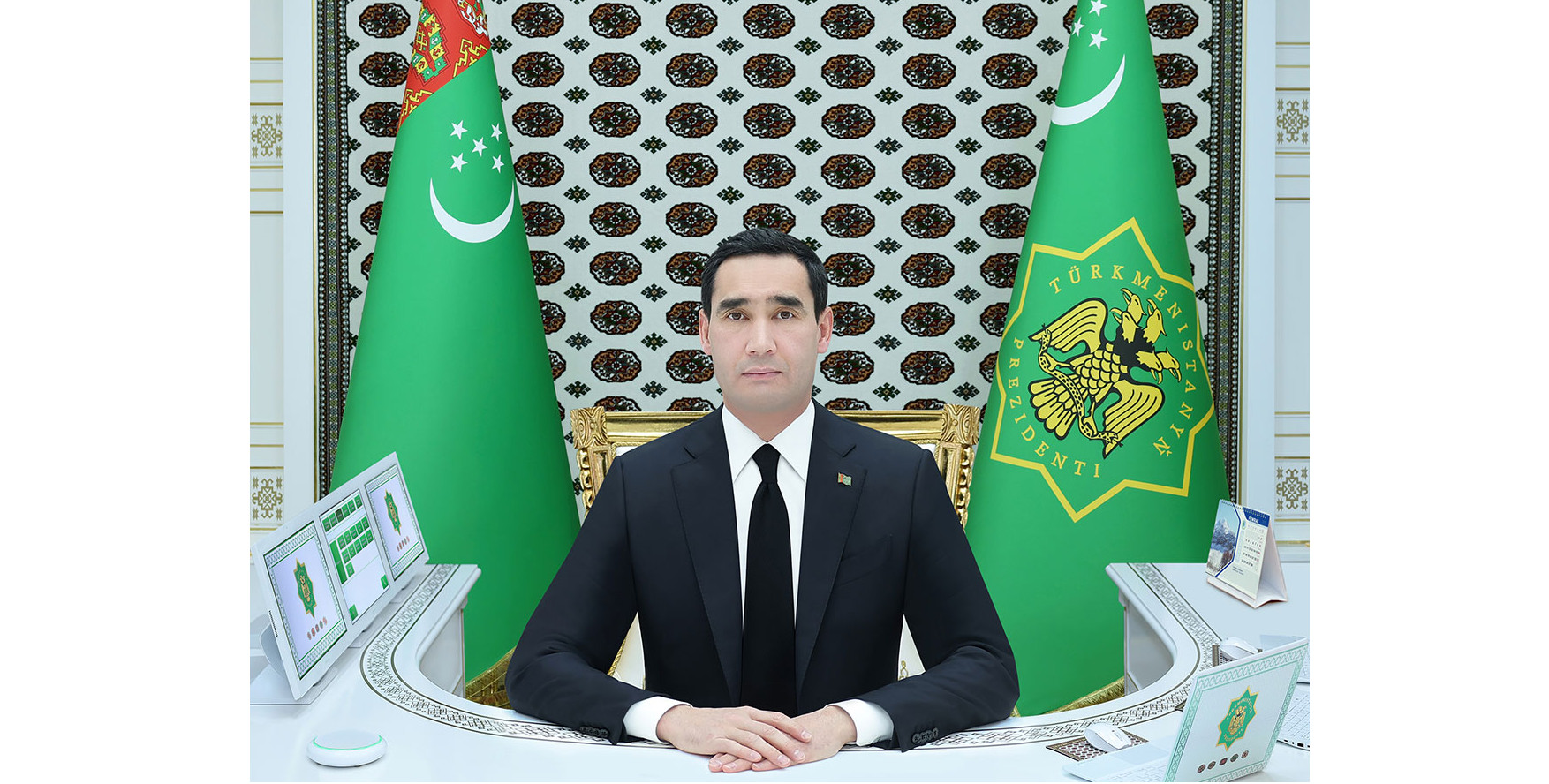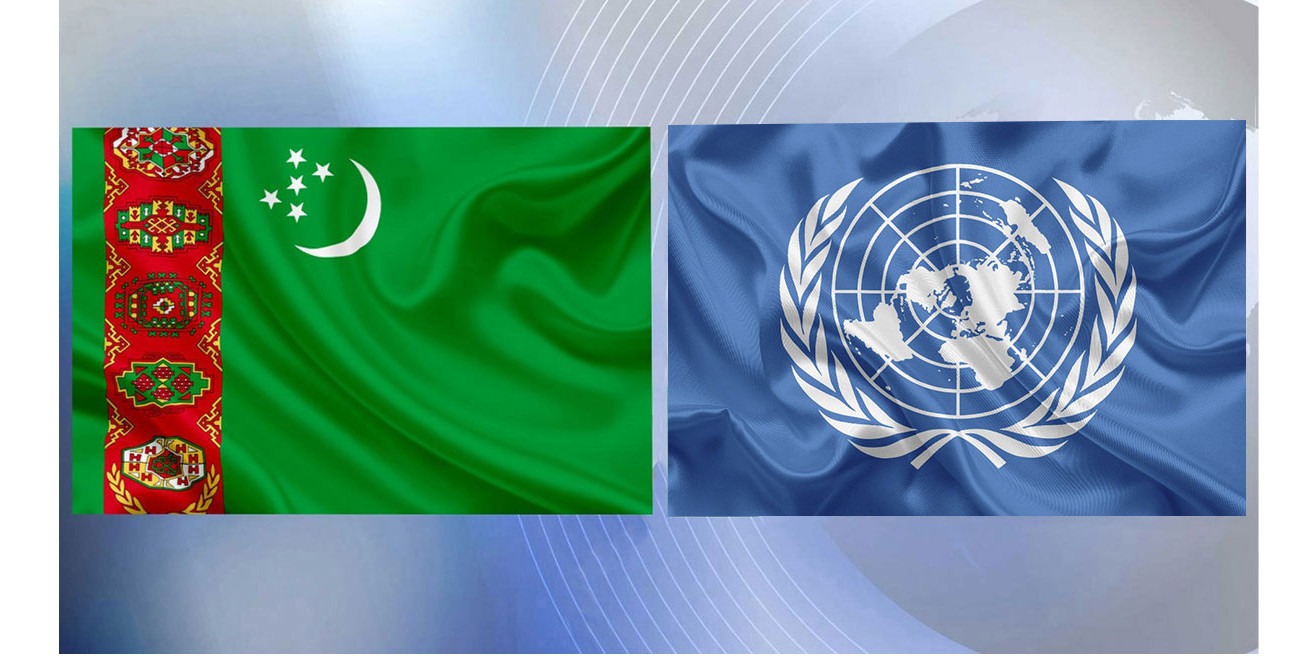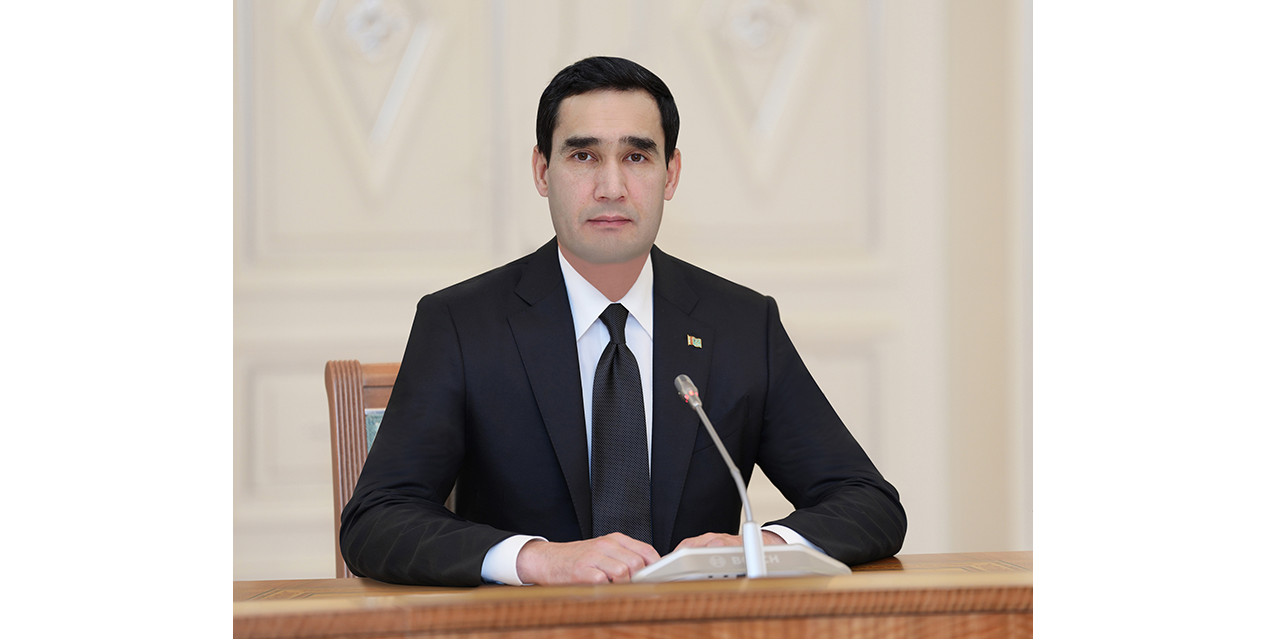
The ceremony of launching the pilot project of the Global Transit Document was held yesterday at Berkarar Hotel of the Avaza National Tourist Zone.
The Global Transit Document (GTrD), which is a universal digital solution for the development of multimodal transportation, is the result of fruitful cooperation between the Permanent Secretariat of the Intergovernmental Commission of the International Transport Corridor Europe-Caucasus-Asia (TRACECA) with the International Center for Transport Diplomacy, the Intergovernmental Council of Road Workers of the CIS, and the world's largest developers IT technologies, as well as with countries that have shown interest in pilot application of the GTrD.
In order to develop a single multimodal document aimed at maximizing the simplification of international transit traffic, a working group was previously created, which included representatives of state bodies, customs departments of the TRACECA member countries, as well as observers, including the beneficiary of the TRACECA program - Turkmenistan and partner TRACECA is an international organization of UNESCAP.
Since 2020, active rework and preparation of the final version of the GTrD Concept has been carried out, and since 2022, joint work has begun on the preparation of pilot transportation.
Speaking by means of live video communication to the participants of the current solemn ceremony of launching the pilot project, Secretary General of the Permanent Secretariat of the Intergovernmental Commission of the International Transport Corridor Europe-Caucasus-Asia - (TRACECA) A. Asavbaev underlined the importance of today's event, noting that the implementation of the Global Transit Document will become a significant contribution to the digitalization of global supply chains within the framework of the Ashgabat process.
The launch ceremony of the pilot project of the Global Transit Document was also attended by the Executive Secretary of the International Center for Transport Diplomacy I. Runov, Chairman of the Intergovernmental Council of Road Workers of the Commonwealth of Independent States B. Karimov, as well as representatives of the countries of the region - Kazakhstan, Tajikistan, Turkmenistan and Uzbekistan.
The speakers emphasized that at the turn of the third decade of the 21st century, economic realities and trends in the development of the world economy created an obvious need for the development and implementation of a unified Global Transit Document in order to optimize the management of the transport process along multimodal corridors connecting states of different regions and continents.
Consistently integrating into the international transport sector, our country attaches great importance to the uninterrupted use of the created corridors for the transportation of goods.
Today, almost all international transportation over long distances is multimodal, that is, in any cross-border transport and logistics chain, cargo is delivered using several types of transport. In this regard, there are often delays, including those related to customs procedures.
The introduction of a digital platform of the global transit network based on the latest technologies using the Global Transit Document will make it possible to extend the customs guarantee and insurance regime, as well as ensure the traceability of goods and vehicles along the entire route from the starting point to the final destination.
A new approach to organizing global supply chains involves the use of modern digital technologies and the “block-chain” platform, containerization of cargo and strict adherence to the standards and recommendations of the UN, the World Customs Organization and the World Trade Organization.
“Block-chain” technology automates and greatly speeds up the circulation of documents for international cargo transportation. At the same time, data in the public part of the network is open to everyone, but is completely protected from unauthorized interference.
According to the sides, the use of GTrD and the digital network of customs transit as a whole is capable of transforming the system of regional transit and global supply chains, opening up great opportunities for the development of electronic commerce and digital transport, as well as ensuring customs security during transit and timely compensation for possible losses by customs authorities of transit countries in case of non-delivery of goods.
At the end of the official launching ceremony of the pilot project of the Global Transit Document, its participants adopted a Joint Statement, in which they confirmed the readiness of the sides for further cooperation in promoting the proposal to create a global digital transit network at various levels, as well as within the United Nations.







